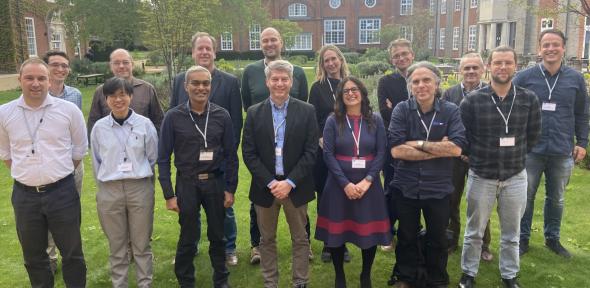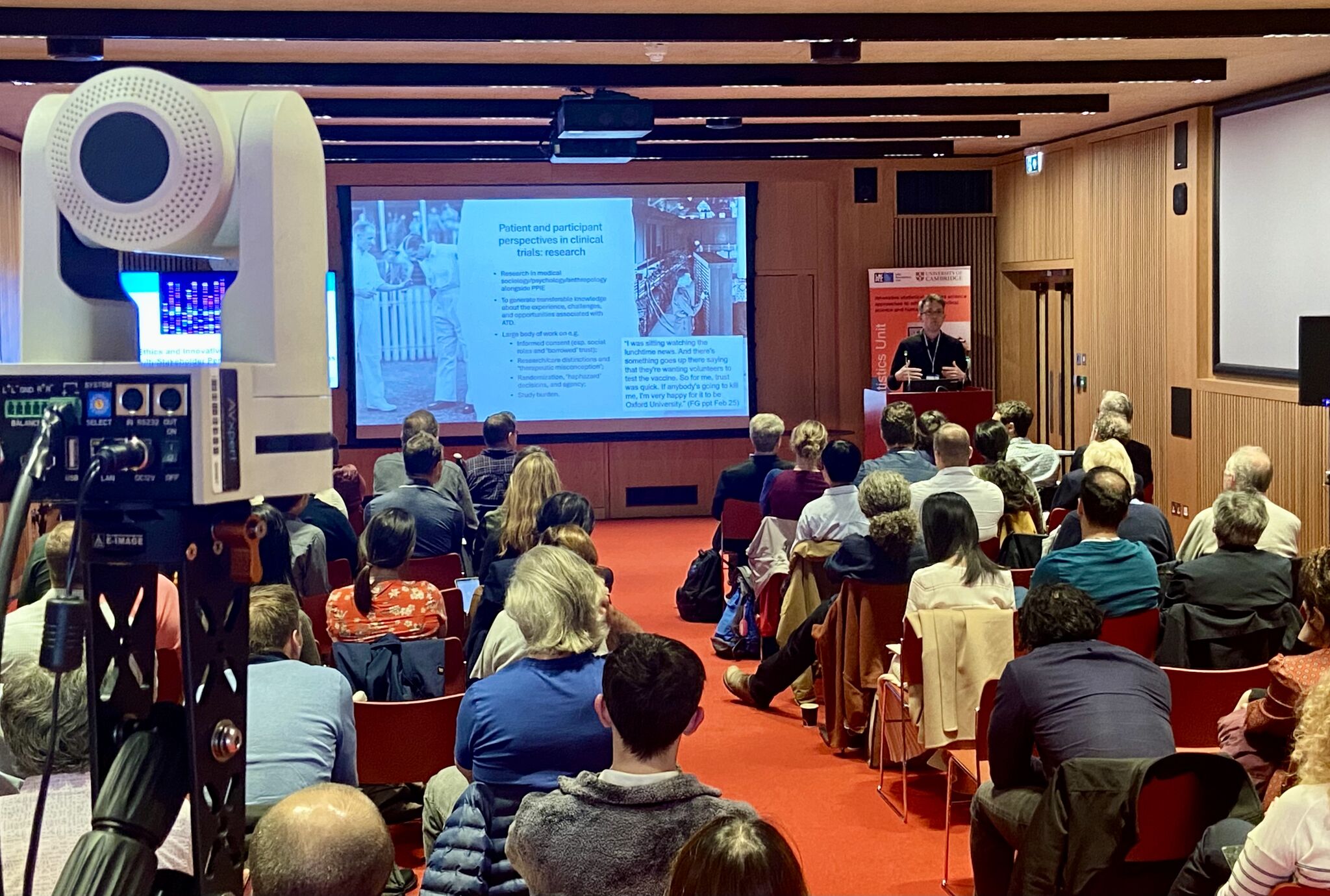
Submitted by A.S. Quenault on Tue, 13/05/2025 - 11:21
On Thursday 24th April, the BSU hosted a notable international workshop designed to bring together diverse perspectives on the ethical, regulatory, patient, and methodological issues surrounding the use of adaptive clinical trial designs.
The well-attended and insightful event, co-organised with Carnegie Mellon University, K & L Gates Initiative in Ethics and Computational Technologies, and Oxford Population Health, brought together leading statisticians, ethicists, industry representatives, policymakers, regulators, and patient advocacy groups, to discuss the evolving landscape of adaptive clinical trial designs and their ethical implications.
Speakers included; Frank Bretz (Novartis), Thomas Jaki (MRC Biostatistics Unit), Philip Pallmann (University of Cardiff), Haiyan Zheng (University of Bath), Alex John London (Carnegie Mellon University), Jerome Singh (University of KwaZulu-Natal), Rieke van der Graaf (University of Utrecht), Kathrine Littler (World Health Organization), Jonathan Kimmelman (McGill University), Andrea Manfrin (Medicines and Healthcare Products Regulatory Agency), Andrew Thomson (European Medicines Agency), Gregory Levin (US Food and Drug Administration), and Richard Milne (University of Cambridge).
Held at Newnham College in Cambridge, the hybrid event attracted over 120 attendees from a variety of fields, including industry leaders and patient and public representatives. One in-person attendee said:
“The workshop was an excellent opportunity to enhance my understanding of the ethical aspects of adaptive designs as well as regulatory and patient perspectives. It stressed the efficiencies of such designs, but also the challenging statistical implications that these designs have for estimation of effects and confidence intervals. I look forward to continuing to apply some of the learnings to my current work.”
Another virtual attendee said:
“Just wrapped up attending the "Ethics and Innovative Trial Designs: A Multi-Stakeholder Perspective on Adaptive Designs" workshop - virtually, but it felt anything but distant. Grateful for the brilliant minds from Cambridge, Carnegie Mellon, Oxford, WHO, FDA, and beyond, who didn’t just lecture, they challenged assumptions about ethics, evidence, innovation, and patient-centered trials. If the future of clinical research looks like what we discussed today - complex, adaptive, ethically rigorous, then it’s a future I want to help build. Workshops like these are not just events - they are catalysts. I look forward to being part of more conversations, more programmes, and more movements that redefine how we design and govern clinical trials.”
The workshop was conceptualized by BSU Programme Leader, Sofía Villar, an expert in response-adaptive clinical trials. Having participated extensively in the statistical debate on these designs, Sofía envisioned the event as a pivotal platform to bring together ethicists and discuss their ethical implications. This vision ignited the initial conversations that led to the event's development and the involvement of many other contributors. Sofia said:
“It was incredibly gratifying to discover during the workshop's duration that what had been a deep, personal curiosity for me – namely, how to properly discuss the ethics of adaptive designs – was, in fact, a critical topic the broader community was ready and eager to engage with.”
A major outcome of the workshop will be a collaborative paper, co-authored by the distinguished speakers and other key contributors. This forthcoming publication will serve as a crucial distillation of the in-depth discussions held over both the public "open day" and the subsequent focused "closed day" sessions. The paper is set to concisely and clearly summarize the rich exchange of ideas, outlining areas where further research is urgently needed and highlighting emerging consensus on critical topics. By consolidating these expert perspectives, the paper aims to provide clear directions for future research and foster greater agreement within the field, ultimately shaping the trajectory of the use of adaptive designs in practice. This collaborative effort underscores the event's commitment to translating dialogue into actionable insights for the research community.
Recordings of the fantastic talks are available to view here - https://www.youtube.com/playlist?list=PLbvdNT0i2SCzowIT0C-Tm4IsyRgIif6aV
Special thanks to the scientific co-organisers; Sofía Villar (MRC Biostatistics Unit), Stef Baas (MRC Biostatistics Unit), Alex John London (Carnegie Mellon University), Mark Sheehan (Oxford Population Health), Lukas Pin (MRC Biostatistics Unit) and David Robertson (MRC Biostatistics Unit), as well as to Alison Quenault (MRC Biostatistics Unit) for project managing the planning and delivery. Thanks also to the International Centre for Mathematical Sciences and the International Biometric Society for supporting the workshop.


